
In the realm of philosophical inquiry, thought experiments serve as powerful tools for unraveling the intricacies of our cognitive faculties and exploring the boundaries of human imagination. These mental constructs allow us to transcend the constraints of reality, pushing us to ponder profound questions and challenge the very nature of our existence. To delve into this captivating realm, we present a curated selection of the top five books on thought experiments that will ignite your intellectual curiosity and leave you questioning the fabric of the universe.
Related:
Here at Curious Matrix we really like to delve into topics of hypothetical questions, what if questions and of course thought experiments. So, therefore here are our top 5 books on thought experiments. Well, we could also call them – thought provoking books.
And at the end we’ll show you some of thought experiments that became reality.
So, let’s start:
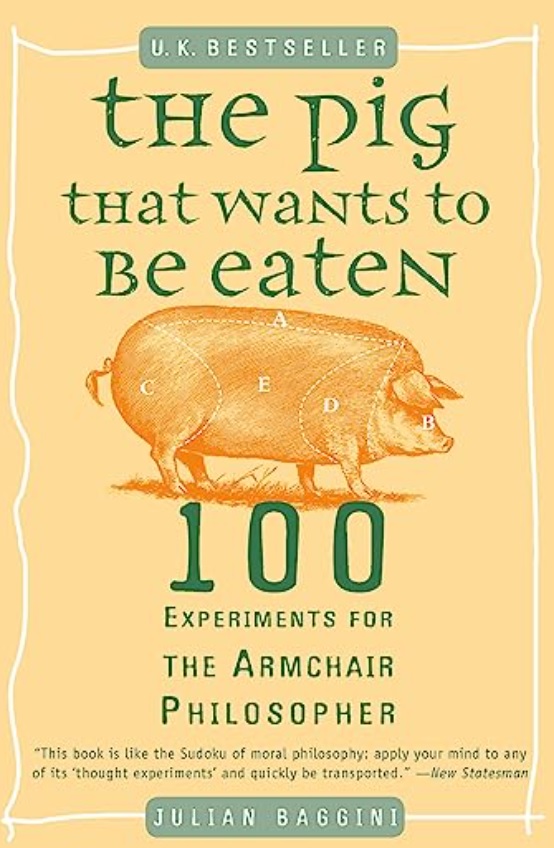
“The Pig That Wants to be Eaten: 100 Experiments for the Armchair Philosopher” by Julian Baggini:
Baggini’s thought-provoking compendium of one hundred bite-sized thought experiments is an intellectual delight. Each experiment presents a moral, ethical, or philosophical conundrum, inviting readers to ponder profound questions on topics ranging from personal identity to the nature of reality. With wit and clarity, Baggini stimulates introspection, encouraging readers to confront their assumptions and explore the intricacies of the human condition.
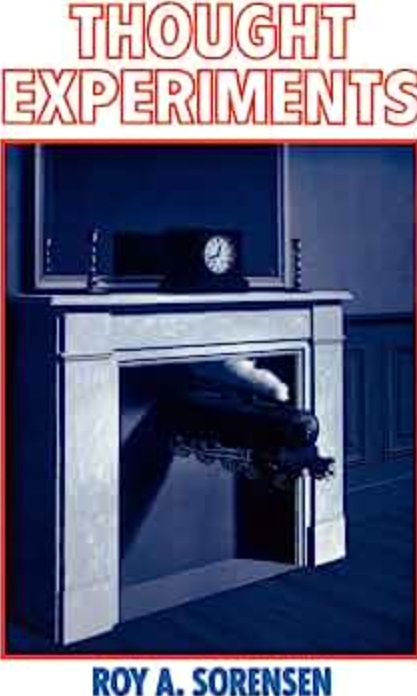
“Thought Experiments” by Roy Sorensen:
Delving into the rich tapestry of philosophical inquiry, Sorensen offers a comprehensive and accessible exploration of thought experiments throughout history. With insightful analyses of classic and contemporary experiments, this book equips readers with the tools necessary to engage in critical thinking and examine complex concepts. Sorensen’s erudite prose serves as an intellectual guide, sparking profound reflections and igniting the flame of philosophical curiosity.
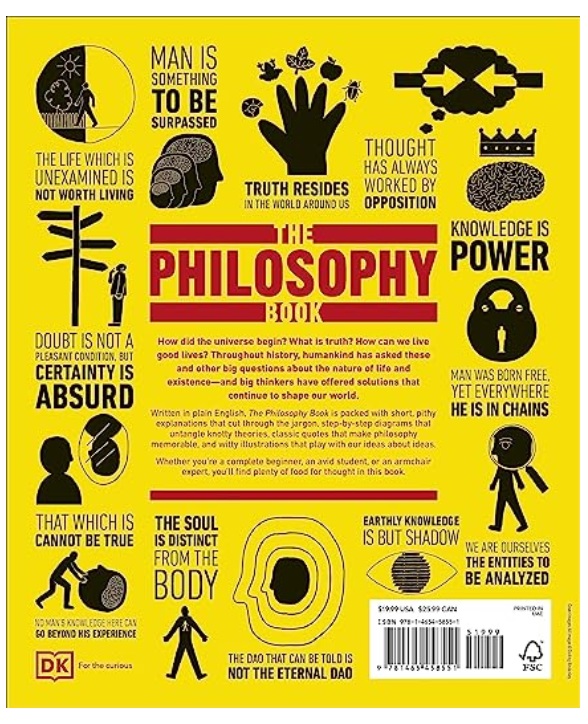
“The Philosophy Book: Big Ideas Simply Explained” by DK Publishing:
As a visually stunning guide to the history of thought, this comprehensive tome introduces readers to a wide range of philosophical ideas and thought experiments. From Plato’s Allegory of the Cave to Schrödinger’s Cat, each concept is presented with clarity and conciseness, making it accessible to both novice and seasoned philosophers. With its engaging illustrations and lucid explanations, this book is an essential companion for anyone eager to embark on a philosophical journey.
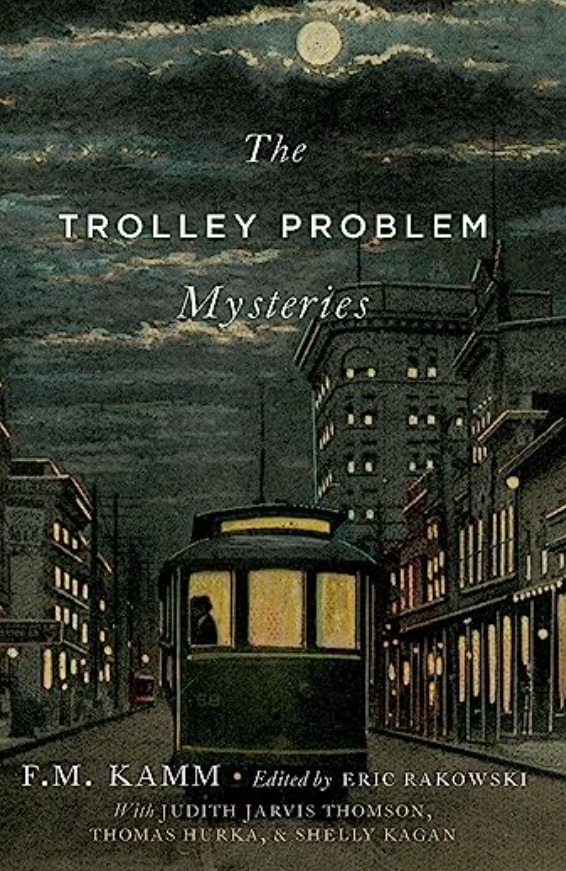
“The Trolley Problem Mysteries” by F.M. Kamm:
Deeply rooted in moral philosophy, “The Trolley Problem Mysteries” delves into one of the most well-known and debated thought experiments in ethics. F.M. Kamm offers a comprehensive examination of the intricate variations of the trolley problem, where one must make a life-or-death decision. By analyzing the nuances and implications of different scenarios, Kamm challenges readers to confront their intuitions and explore the complexities of ethical decision-making. This thought-provoking book serves as a testament to the power of thought experiments in illuminating our moral landscape and forcing us to confront the intricacies of our own values.
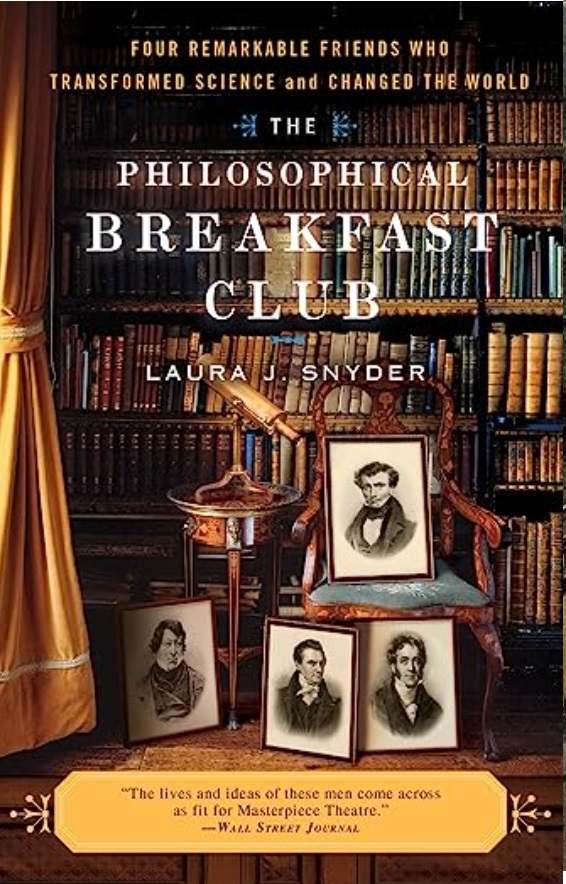
“The Philosophical Breakfast Club: Four Remarkable Friends Who Transformed Science and Changed the World” by Laura J. Snyder:
“The Philosophical Breakfast Club” by Laura J. Snyder takes readers on a captivating journey through the lives and intellectual pursuits of four influential thinkers: Charles Babbage, John Herschel, William Whewell, and Richard Jones. While not solely focused on thought experiments, this engrossing narrative highlights the transformative power of deep intellectual discussions and imaginative conjectures.
In the realm of thought experiments, these five books stand out as captivating explorations of the human mind and the nature of reality. From delving into the intricate connections between art and mathematics to grappling with moral dilemmas, these books ignite the spark of intellectual curiosity within us.
Whether you are an armchair philosopher or a seasoned thinker, these thought-provoking works are bound to leave an indelible mark on your intellectual journey, inviting you to question, reflect, and embark on a lifelong pursuit of knowledge, education and understanding.
While thought experiments are primarily theoretical constructs designed to explore hypothetical scenarios and challenge our thinking, some have had a significant impact on shaping our understanding of the world and have led to real-world applications. The power of thought experiments lies in their ability to inspire and guide scientific investigations, technological advancements, and philosophical discourse.
Here are a few examples of thought experiments that have transitioned from abstract concepts to real-world implications:
Thought Experiments That Became Reality
- Einstein’s Theory of Relativity: Albert Einstein’s famous thought experiments involving imagined scenarios of traveling at the speed of light and observing the effects of gravity played a crucial role in formulating his theory of relativity. This groundbreaking theory has revolutionized our understanding of space, time, and the nature of the universe. It has also been experimentally confirmed through various scientific observations and technological applications such as global positioning systems (GPS) that rely on the precise measurements of time dilation and the effects of gravity.
- Schrödinger’s Cat and Quantum Mechanics: Schrödinger’s thought experiment, in which a cat can be both alive and dead simultaneously, was devised to illustrate the paradoxical nature of quantum mechanics. While the experiment itself cannot be replicated in the physical world, the underlying principles of superposition and entanglement that it represents have been experimentally verified. Quantum mechanics, with its probabilistic nature and the phenomenon of wave-particle duality, forms the foundation of modern technologies such as quantum computing and cryptography.
- The Prisoner’s Dilemma: The Prisoner’s Dilemma is a thought experiment in game theory that explores the conflict between individual and collective rationality. While it remains a theoretical construct, the principles derived from this experiment have influenced real-world scenarios, such as economics, politics, and social cooperation. The insights gained from studying the Prisoner’s Dilemma have informed decision-making strategies in various fields, including business negotiations, environmental policy, and international relations.
- The Turing Test: Proposed by Alan Turing, the Turing Test is a thought experiment designed to determine whether a machine can exhibit intelligent behavior indistinguishable from that of a human. While the test itself is a theoretical construct, it has stimulated advancements in artificial intelligence and machine learning. The quest to develop intelligent machines has led to practical applications in fields such as natural language processing, computer vision, and autonomous systems.
- Maxwell’s Demon: One thought experiment that has had a tangible impact on the field of thermodynamics is Maxwell’s Demon. Proposed by physicist James Clerk Maxwell in 1867, the experiment challenges the second law of thermodynamics, which states that entropy (disorder) in a closed system always increases over time. Maxwell’s Demon presents a hypothetical scenario where a tiny intelligent being selectively allows fast-moving particles to pass through a small opening, effectively decreasing the system’s entropy. Although the Demon itself remains purely theoretical, advancements in nanotechnology and information processing have made it possible to manipulate and control individual particles at the nanoscale. In recent years, researchers have explored the concept of “information-based thermodynamics” inspired by Maxwell’s Demon, utilizing information processing techniques to extract work from microscopic systems while violating the conventional understanding of entropy. Practical applications stemming from these investigations include the development of novel information-based devices and systems, such as nano-scale motors and switches, where the control of individual particles and the manipulation of energy flows play crucial roles. By bridging the gap between theoretical thought experiments and practical implementations, Maxwell’s Demon has not only contributed to our understanding of fundamental physics but has also opened doors to potential technological advancements in the realm of nanoscience and beyond. Maxwell’s Demon serves as a reminder that thought experiments, even when seemingly disconnected from reality, can inspire scientists to explore new frontiers and challenge established scientific principles. By pushing the boundaries of our knowledge and imagination, these experiments can ultimately lead to real-world breakthroughs, enhancing our understanding of the natural world and expanding the horizons of human innovation.
These examples demonstrate how thought experiments can serve as catalysts for scientific inquiry, technological innovation, and philosophical discourse. While they may originate as mental constructs, their profound insights and implications often transcend theoretical boundaries, shaping our understanding of the world and driving us toward new discoveries and practical applications.
Note: If you’re interested in similar articles, we’d recommend to check out:
- Top 10 Books For Curious Minds
- 10 Best Books On Artificial Intelligence
- Top 5 Best Fiction Books About Artificial Intelligence
- 10 Books That Will Make You Rethink Reality
- 10 Must-Read Books on Alternate History
- Top 10 Books For Curious Minds
- Top 10 Books To Spark Your Curiosity
- Best Non-Fiction Books About Multiverse?




























